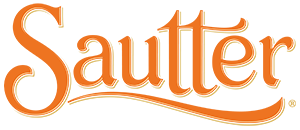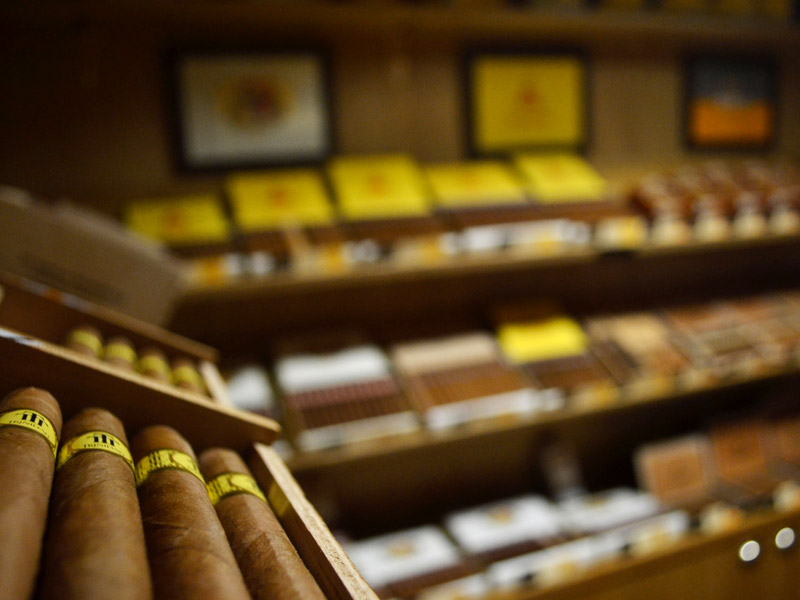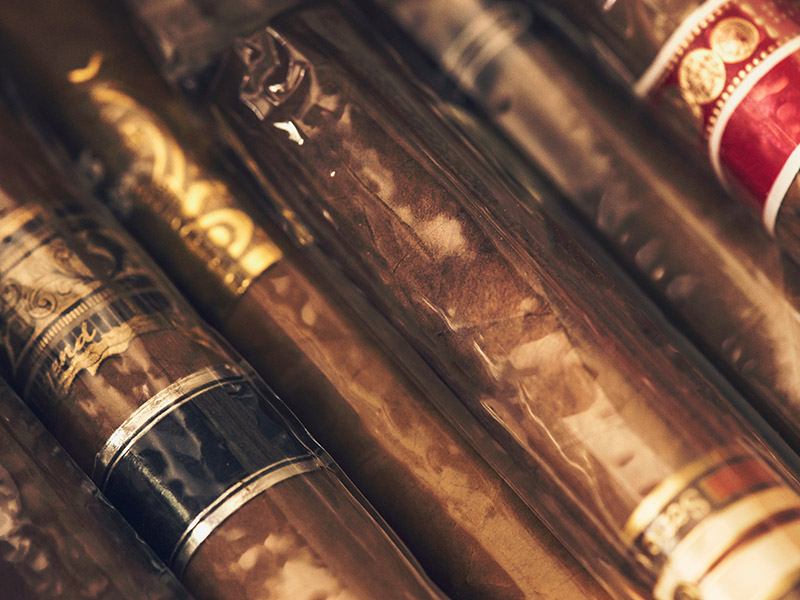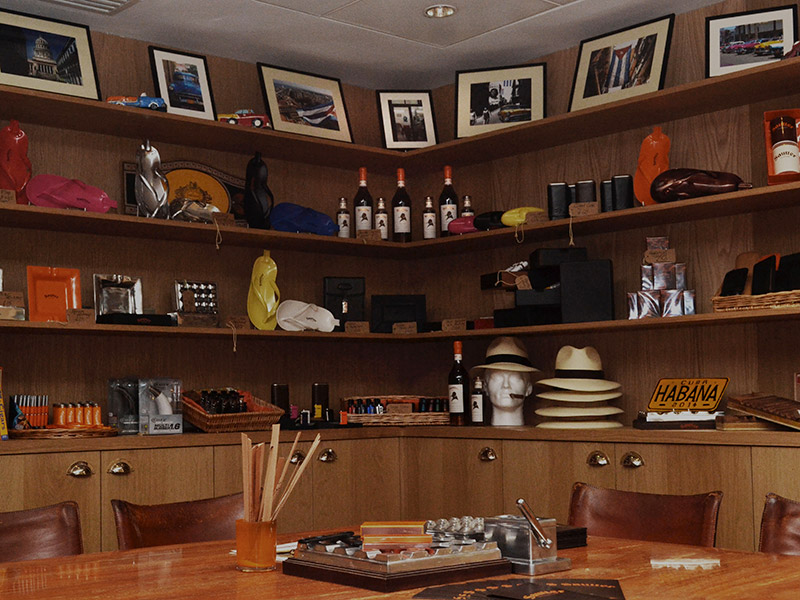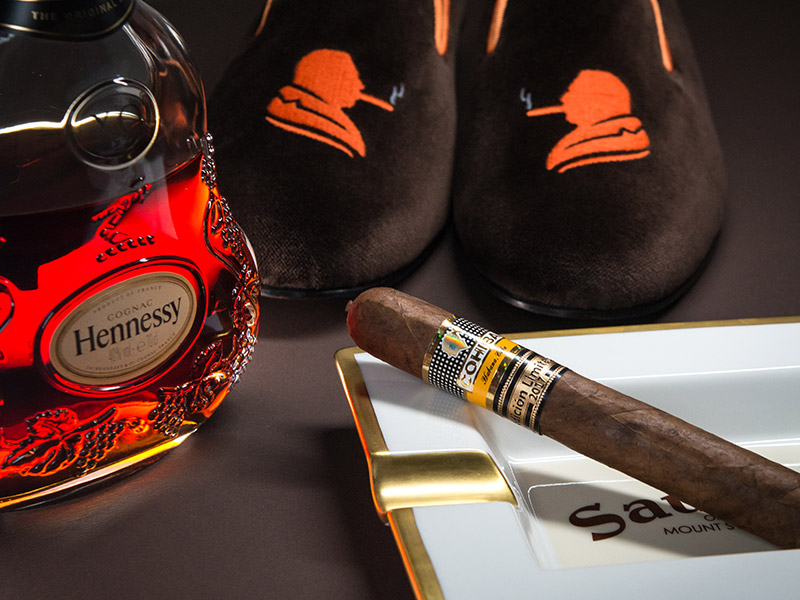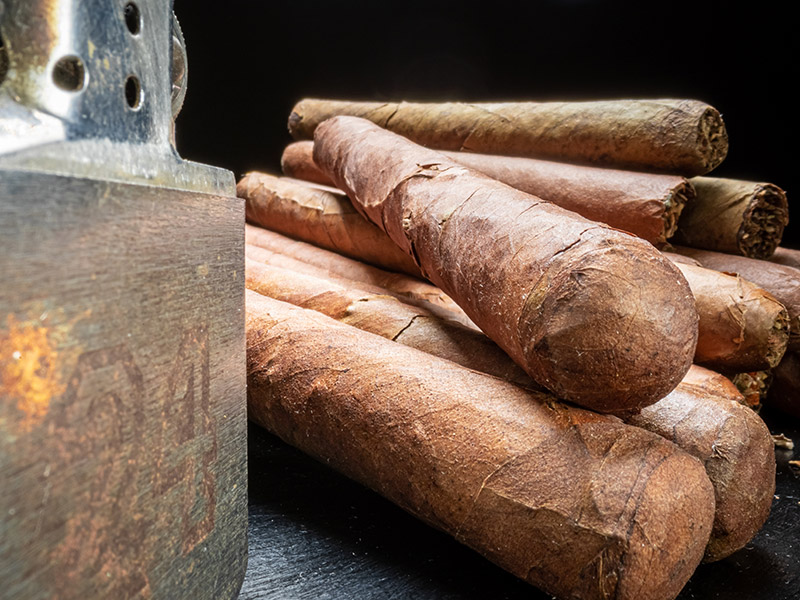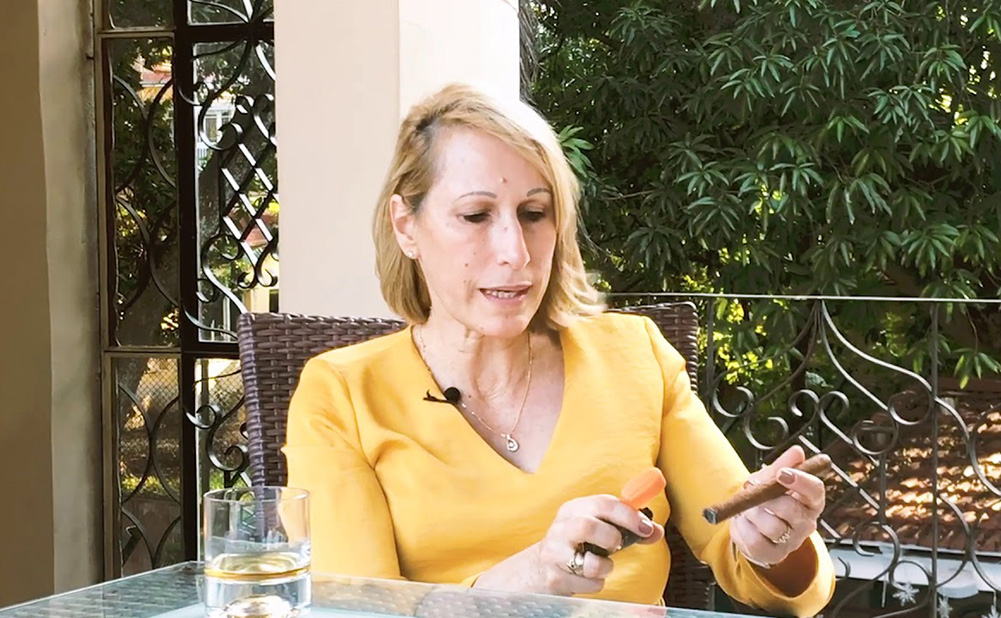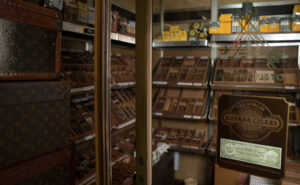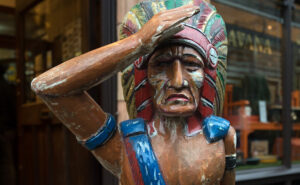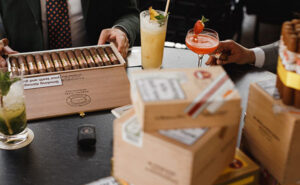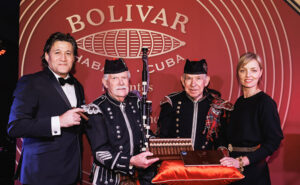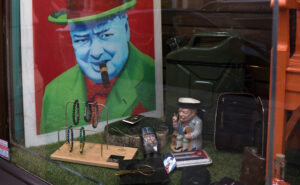FOR someone who has been intimately involved in London’s cigar scene for decades, Magali de la Cruz still shows a remarkable level of enthusiasm for the humble hand-rolled cigar.
If you’ve ever been to Sautter of Mount Street, the chances are that you will have met, or at least seen – and more than likely heard Mags.
The unmistakable machine-gun rattle of heavily accented English rolls out of the old doors all day long, with her traditional greeting of “Hello my darleeeng,” a wonderful welcome to many who haunt this special place of worship.
Mags is Cuban – a resident of Sancti Spíritus, roughly midway up the long Caribbean island – and if you catch her in the right mood, she will tell you of interminable days in the countryside on her family’s tobacco farm as a child. She wasn’t an early fan of tobacco.
“Oh, I hated every minute of it!” she says, rolling her eyes, let alone her ‘r’s. “We had to work so hard in the tobacco fields from dawn to dusk. It was hot, it was dirty, it was so tiring. As a young girl, I couldn’t wait to get away.”
And get away she did in her teens, eventually to Havana to study drama, where Mags found out she was a city girl at heart after all.
An actress and poet, like many Cubans you meet, Magali isn’t short of a political opinion on the state of her beloved home, but it’s got her in hot water in the past and is determined not to get drawn – too much – these days. But having found her way, via a circuitous route, to London, and having realised she was sitting on a lifetime of tobacco lore from her family and homeland, she gradually became ‘part of the furniture’ in UK’s cigarland.
“I started with duty-free at Heathrow which was a real baptism of fire,” she says, “and I worked in their shops before moving on. I started to meet the characters, the other people in the business, made lifelong friends and customers.”
Mags continued to move around the scene with JJ Fox and the famous and much-missed old Dunhill store on Jermyn Street also being part of her cigar history. Back in the early 2000s, that was where she says she noticed a change in the trend for fine hand-rolled cigars.
“Up until then, people came, they bought cigars, they placed them in their keeps. They were like characters from films, very formal, a lot of older customers, very private people. There was no Instagram or Facebook back then. But at Dunhill, for the first time, we created a little club atmosphere. On a Saturday, a gang would meet, have lunch, visit the barber, smoke their cigars. People got to know one another. Looking back, it was perhaps the first of the lounges that would still be recognisable today. I would say there has been a 180-degree shift in the way the cigar industry works since then.”
Since then, the cigar world in a way began to shrink; enthusiasts began to travel to further explore their passion. The cigarmaking world was no longer something that only industry insiders got to see. Events like the annual Italian Ami Cigar festival attracted retailers and aficionados alike to enjoy their hobby with other like-minded folks from around the world.
“English people were not as romantic as the Italians in their descriptions of course,” she laughs. “They were always quite pragmatic. But they began to explore cigars in new ways. Even in Cuba, we would just say ‘good cigar, bad cigar, nice aroma, bad aroma’ but now there were more descriptions, more in-depth analysis of flavours.”
Eventually, Magali found her home from home at Sautter, and forged a bond with its owner, Laurence Davis. He was bowled over by her knowledge, her unbeatable contacts on the ground in Havana, her ability to quickly deal with all the factories there as well as personal relationships with some of the finest rollers the cigar world has ever seen.
For many years, Mags has been the face of Sautter Cigar Training, the Saturday morning workshops in which she leads a small group of novices through some basics of Cuban cigars alongside some good coffee, pastries and a hand-picked selection of some of Cuba’s finest. The training sessions remain one of the most popular Sautter tickets available and hundreds of young and enthusiastic cigar lovers have been set on their cigar journeys by Mags’ passion.
Mags has also seen a new rise in cigars in recent years – where once London was only concerned with Cuban cigars, there is now considerable interest in what is commonly known as New World sticks – those from outside Cuba from countries such as Dominican Republic, Nicaragua, Honduras and Mexico, among others. Mags suggests anecdotally that this rise coincided with less stringent factory control on where specific brands were rolled in Cuba.
“At one time, if you bought a Partagas, it would have been rolled in the Partagas factory. Now it would just as easily have been rolled in Sara Clara! Even Cohiba’s are rolled outside El Laguito (the famous Cohiba factory). Blends became more like each other, less strong.”
Currently, there is a well-publicised shortage of Cuban cigars, due to a myriad of factors; not least Covid; top rollers emigrating to new powers like Nicaragua; farmers moving away from growing tobacco into more profitable crops; a lack of cigar boxes; climate change and much more. The result is that worldwide many cigar merchants are struggling to keep their Cuban shelves stocked. A by-product of this is yet another leg up for the New World cigar market.
“I can’t see things improving over the next five years in terms of supply of Cuban cigars,” says Mags. “There is little finance available for even minor agricultural necessities and fewer people want to grow tobacco than ever before. But this means many of the Cuban people have been able to go and set up private businesses elsewhere and use their knowledge to make a better life. If Yolanda (probably Cuba’s most famous living roller) is the Queen of cigars, Don Pepin Garcia must be the King. He was learning how to roll cigars in Cuba as a child and went on to run many of the factories. Now he has his own brand in Nicaragua (My Father Cigars) which has been hugely successful.”
“In one way I am sad to see things change so much in Cuba, where we grow the world’s best tobacco. But it also makes me proud that Cubans are very often the ones behind the renaissance of New World cigars.”
If you haven’t met Mags, get down to Mount Street and introduce yourself. She is a beacon of light in the UK cigar industry, and we are lucky to have her. And if you get a ‘Hello, my darleeeng’ from Mags, your day always seems somehow better.

